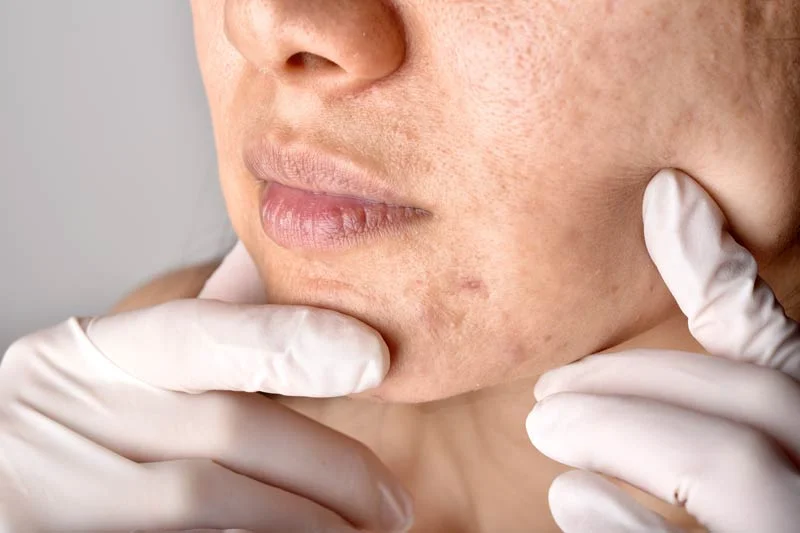Skin Cancer Treatment in Northbrook, IL

Skin Cancer Diagnosis & Treatment
Skin cancer treatment involves various procedures designed to remove or destroy cancerous cells on the skin. The type of treatment chosen depends on the type and stage of skin cancer, as well as its location on the body. Common surgical options include Mohs surgery, which precisely removes cancerous tissue layer by layer, preserving as much healthy skin as possible. Non-surgical treatments like cryoimmunotherapy, which freezes the cancer cells, or topical chemotherapy, which applies medication directly to the skin, are also effective options. Each method aims to eliminate the cancer while minimizing damage to surrounding healthy tissue.
Skin cancer treatment is essential for anyone diagnosed with basal cell carcinoma, melanoma, squamous cell carcinoma, or other types of skin cancer. Early intervention is critical for preventing the spread of the disease and achieving the best possible outcome. Results from treatment are typically seen immediately, especially with surgical options like Mohs surgery, where all cancerous tissue is removed in one procedure. The effects are long-lasting, with regular follow-up care to monitor for any recurrence. If you need Skin Cancer Treatment in Northbrook, IL, book an appointment at Derm Collective North Shore to receive expert care tailored to your specific needs.
Benefits of Skin Cancer Treatment
- Removes cancerous cells effectively
- Prevents the spread of cancer
- Preserves as much healthy skin as possible
- Offers both surgical and non-surgical options
- Provides personalized care based on cancer type
- Quick recovery with minimal downtime
- Reduces the risk of recurrence
- Enhances overall skin health
- Professional follow-up and monitoring
- Increases the likelihood of a positive outcome with early treatment
Faqs About Skin Cancer Treatment
How do I know which skin cancer treatment is right for me?
The best treatment option depends on the type, location, and stage of your skin cancer, as well as your overall health. A dermatologist with board certification will evaluate your condition and suggest a personalized treatment plan that is most suitable for you.
Is skin cancer treatment painful?
Most skin cancer treatments involve minimal discomfort. Surgical procedures like Mohs surgery are performed under local anesthesia, so you should not feel pain during the procedure. Non-surgical treatments, such as topical chemotherapy, may cause some mild irritation or sensitivity.
What are the risks associated with skin cancer treatment?
Just like in any medical procedure, there are potential risks, such as infection, scarring, and alterations in skin pigmentation. These risks are minimized when treatment is performed by an experienced dermatologist, and proper aftercare instructions are followed.
How long does it take to recover from skin cancer treatment?
Recovery duration differs depending on the type of treatment administered. Surgical treatments may necessitate several weeks for the region to heal entirely, whereas non-surgical treatments, such as topical chemotherapy, may entail a briefer recuperation period with mild side effects.
Can skin cancer recur after treatment?
While skin cancer treatment is highly effective, there is still a possibility of recurrence. It’s important to keep up with your regular follow-up appointments with your dermatologist to keep an eye out for any new or returning skin cancer.
Will I need reconstructive surgery after skin cancer treatment?
In some cases, especially if the cancerous area is large or located in a cosmetically sensitive area, reconstructive surgery may be necessary. Your dermatologist will discuss this with you if it is needed, and the reconstruction can often be done immediately after the cancer is removed.

